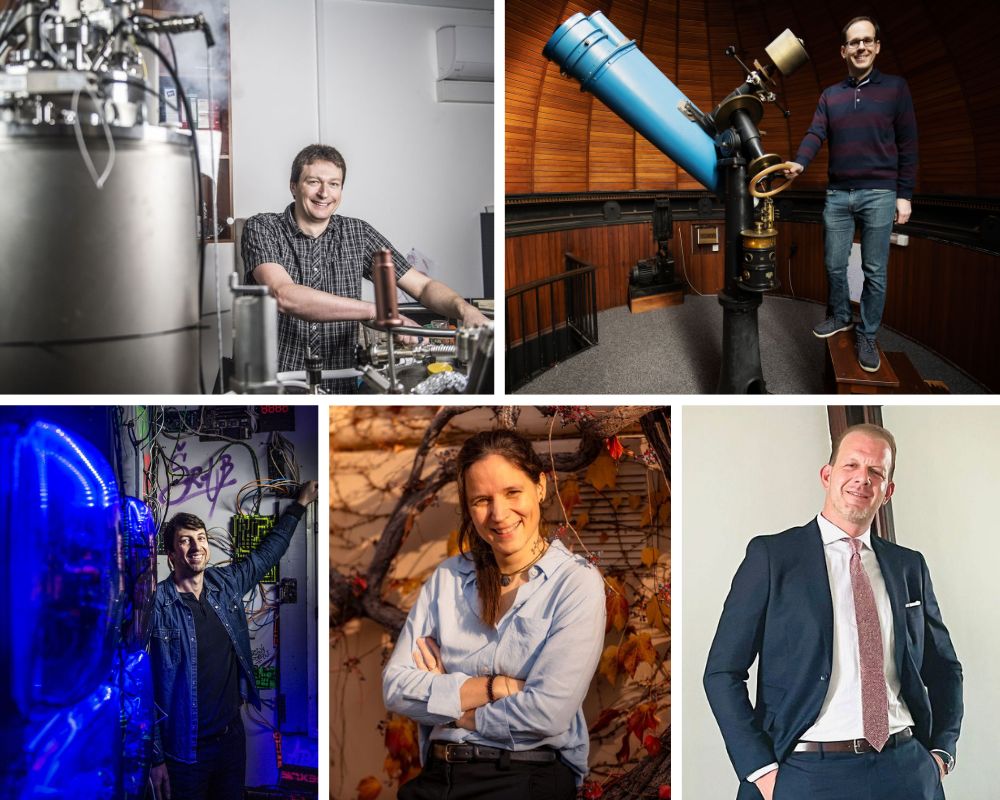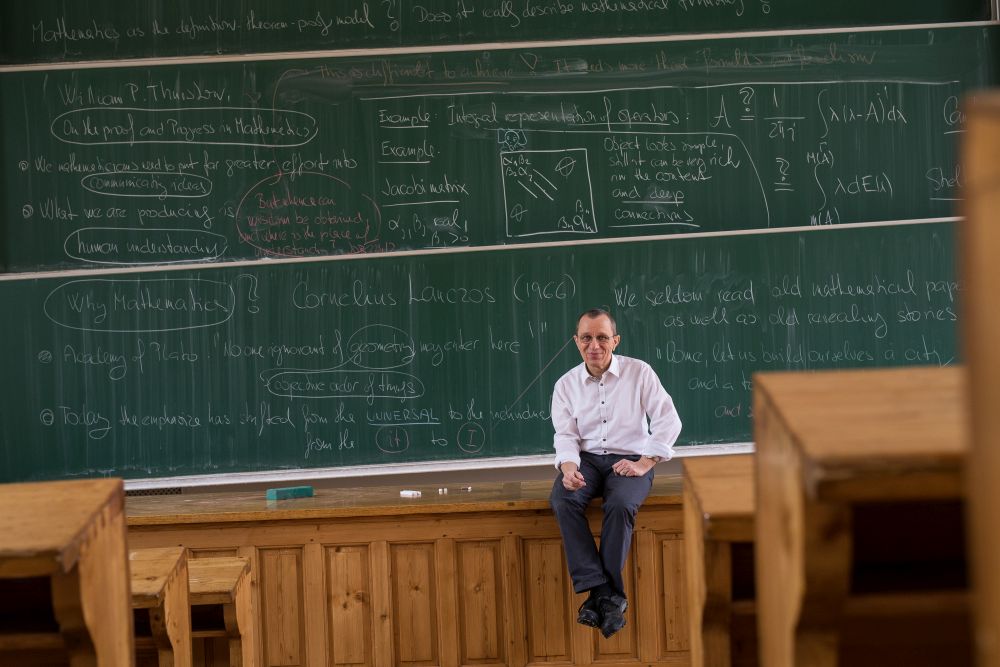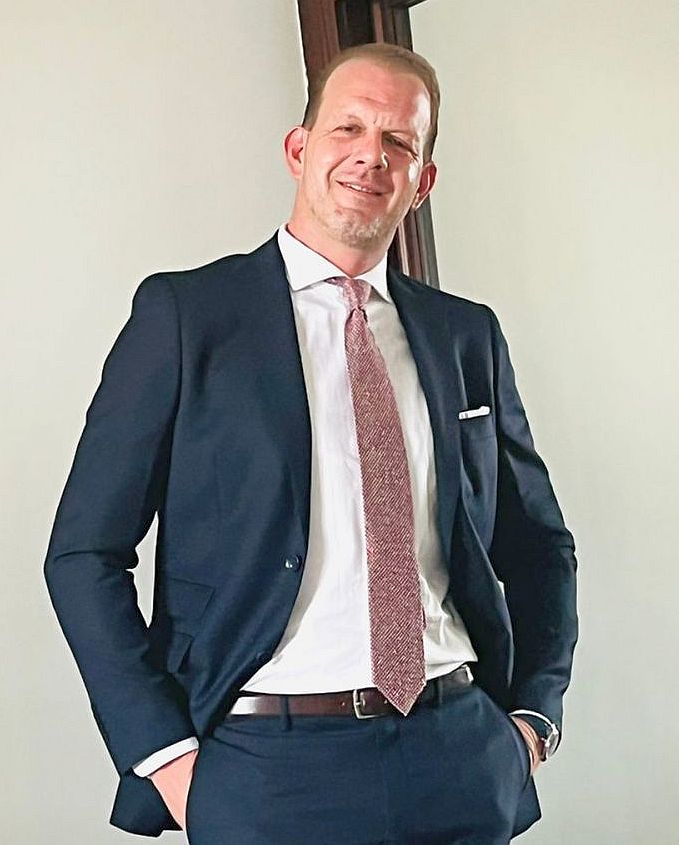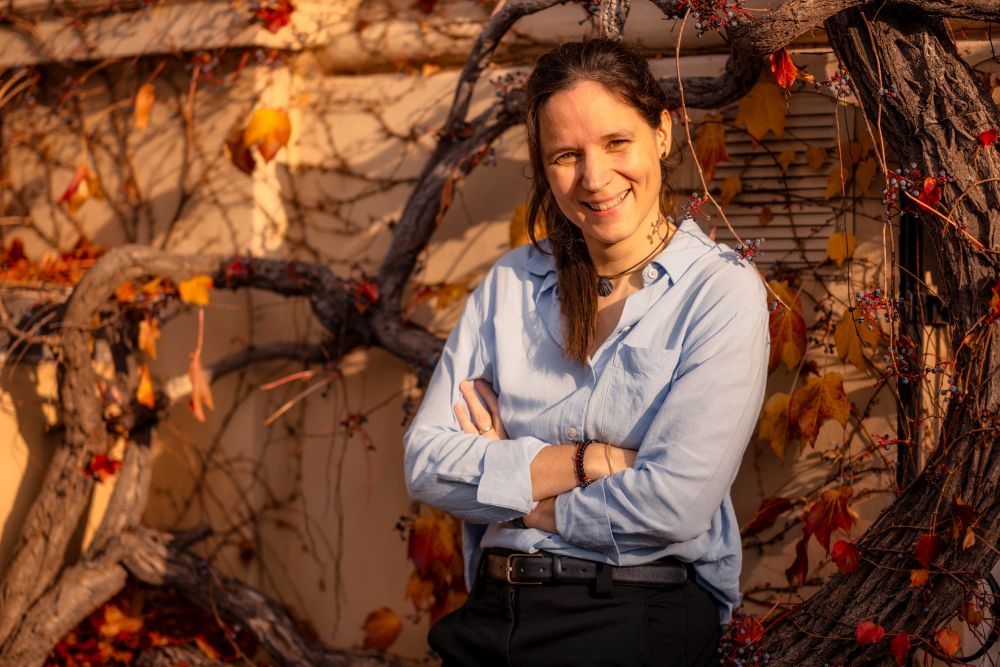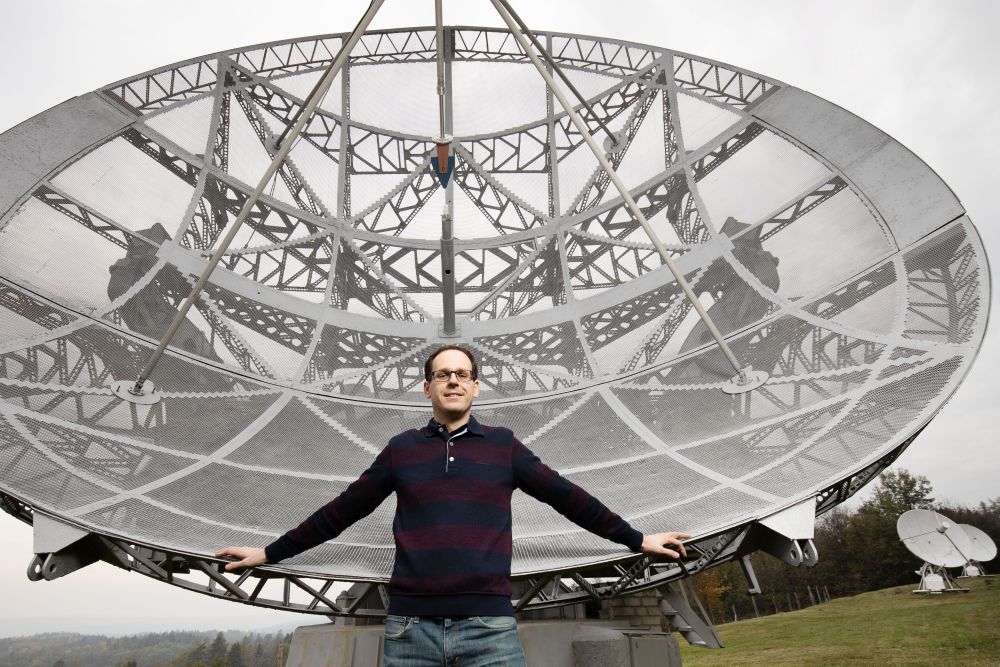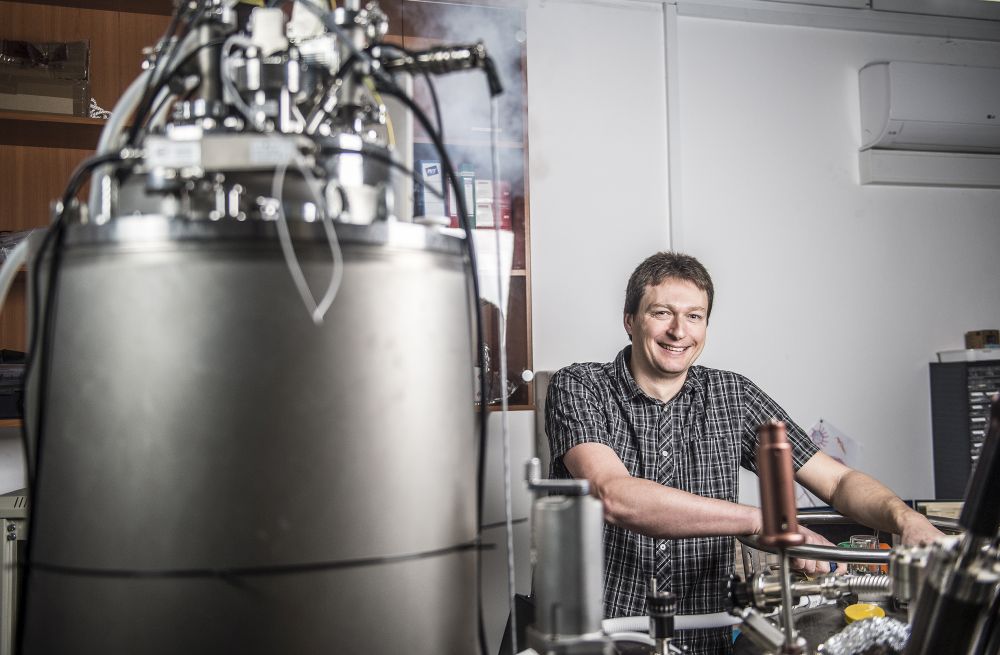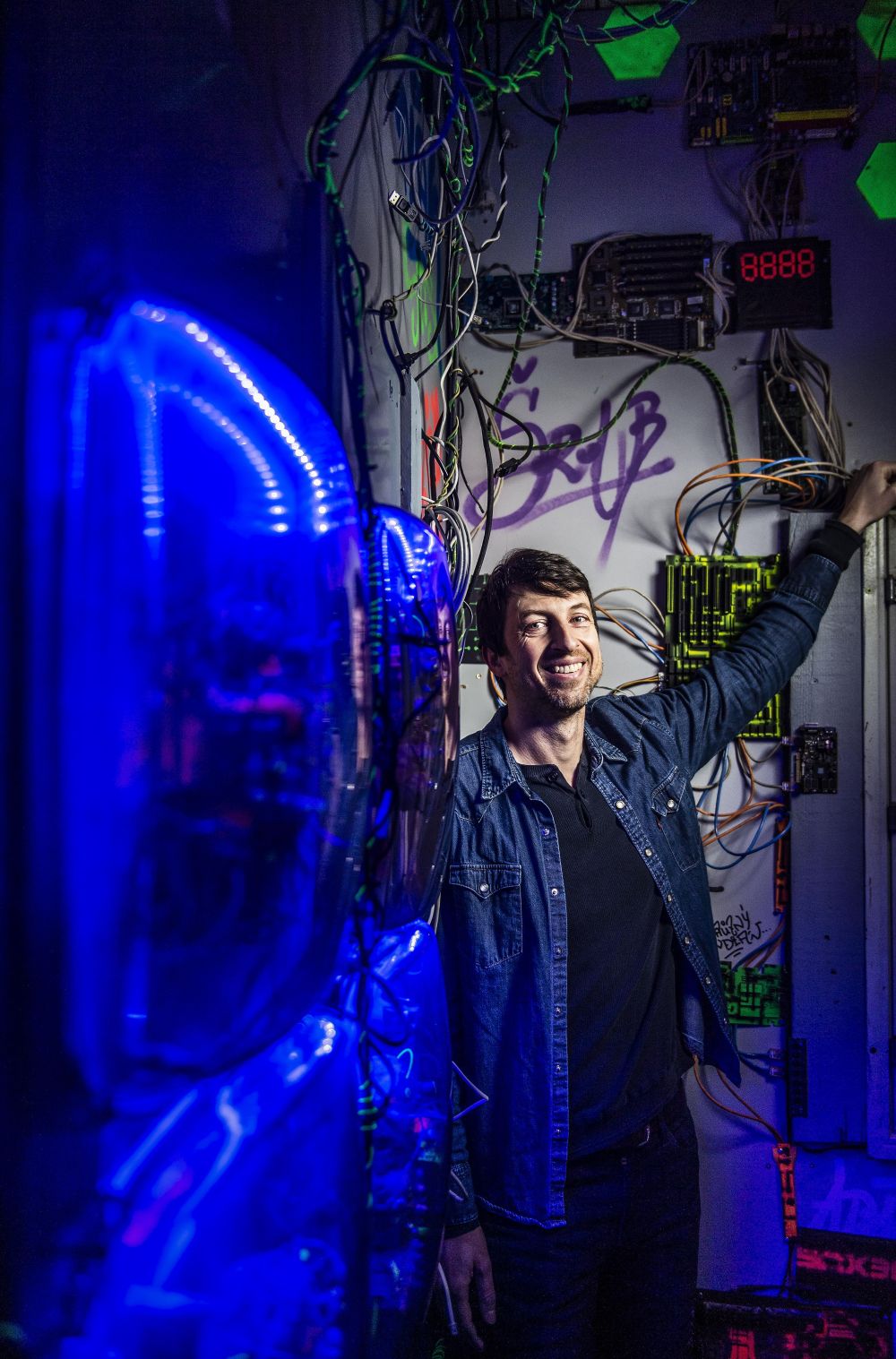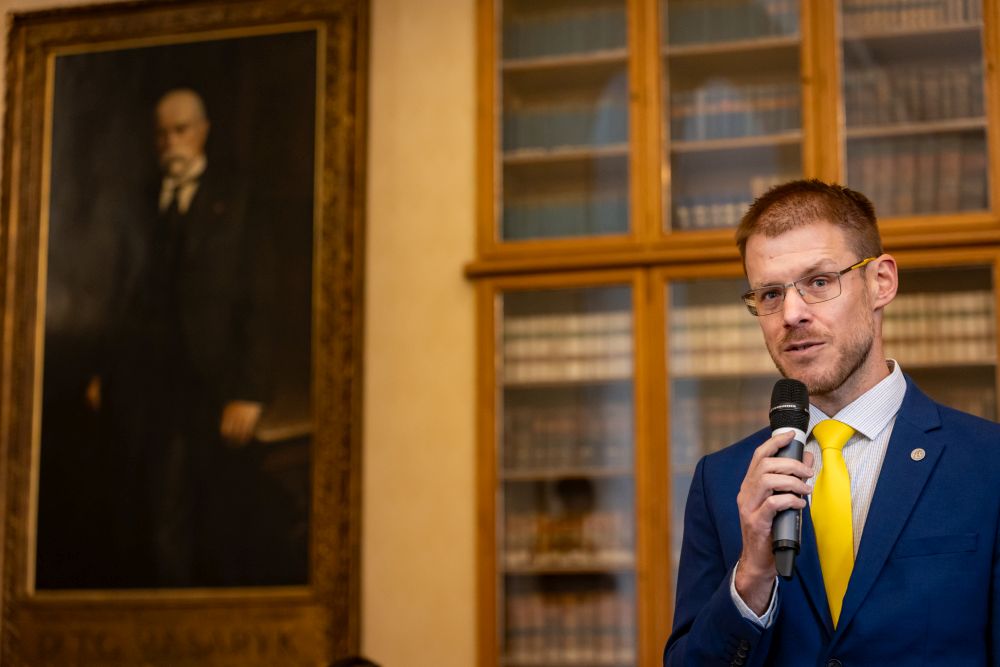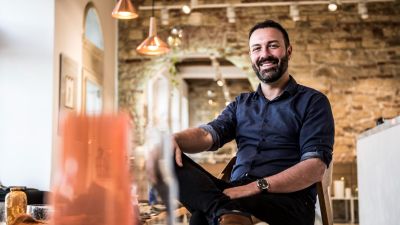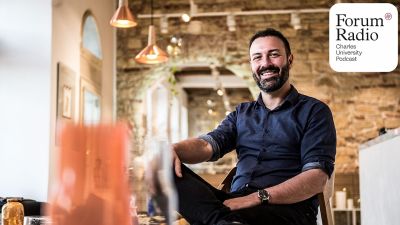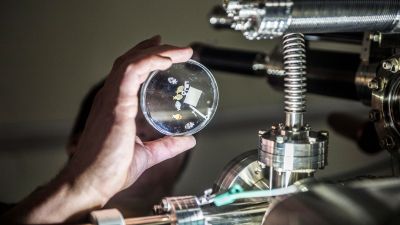Charles University researchers have written a new chapter in success, with five of being awarded prestigious ERC Consolidator grants. This is an unprecedented achievement that also helps the Czech Republic, which, compared to other EU-27 countries, has not been among the most successful in obtaining grants from the European Research Council. This time, scientists from the Faculty of Social Sciences of Charles University and, for the first time ever, from the Faculty of Law of Charles University will not miss out, either. In total, 10 grants will be coming to the Czech Republic, which is a great result: all the new ERC grantees – whether from CU or the Czech Academy of Sciences and Masaryk University - deserve congratulations.
The European Research Council, which decides on the award of ERC Consolidator grants, has supported five of the seven projects submitted to the respective review panels by researcher working at CU. The grants for their five-year projects go to Tomáš Dumbrovský (Faculty of Law, Charles University), Klára Hlouchová (Faculty of Science, Charles University), Ondřej Pejcha and Martin Setvín (both Faculty of Mathematics and Physics, Charles University) and Jaroslav Švelch (Faculty of Social Sciences, Charles University). The European Research Council announced the news on Tuesday 3 December. The projects put forward by CU scientists received a total of €10.6 million in support.
What are ERC Consolidator grants? They are grants for outstanding young scientists at a stage in their career when they need to expand or strengthen, i.e. consolidate, their own independent research team or programme. The purpose of all grants awarded by the European Research Council is to support frontier research that has the potential to fundamentally advance existing knowledge and lead to breakthroughs on an international or global scale.
Having a vision and not being afraid of the problem
Professor Zdeněk Strakoš (Faculty of Mathematics and Physics), who has in the past served, among other things, as chairman of one of the evaluation panels of projects seeking an ERC grant and has been helping applicants with the preparation of their ERC projects for years, has a great deal to do with the success of the Czech Republic. Excellent projects have also been submitted in the Advanced grant category, which is still under evaluation. “I am very happy about the results and I congratulate all the new researchers, whatever their institution. They show by their example that it makes sense to have a long-term vision, not to be afraid of daunting problems and the rigours of international comparison. This also applies to those applicants who, despite the quality of their project, have not succeeded. Nothing is ever lost: for example, four of the five new ERC Consolidator grant holders at Charles University did not apply for the first time, but tried again. They refused to give up. Moreover, one of them received a second ERC grant. It always makes sense to submit a high-quality ERC project," Zdeněk Strakoš says.
“Receiving five ERC Consolidator grants out of seven applications is very significant for Charles University. Although it is out of line with previous statistics, I would be very unhappy if it were just an extraordinary success, a deviation from the norm. I wish for our country and our university that it is, on the contrary, a move towards a standard that is common in other countries and other departments. I would also like our environment to create the necessary conditions for obtaining and maintaining ERC grants,” he notes.
Alongside the five ERC grants awarded to Charles University, an additional five grants are headed to the Czech Republic to other institutions: four to researchers working at institutes of the Czech Academy of Sciences and one at Masaryk University. All the principal investigators who succeeded in this call benefited from the national support system organised by the Technology Centre Prague in collaboration with the Expert Group for ERC Grant Applicants.
“It seems that the many years of effort to shift perceptions of science in the Czech environment—towards seeing it as a standard part of science without borders—are beginning to bear fruit. I believe that the openness of our activities to all applicants and institutions without distinction will help harness the potential of the outstanding researchers we have in the Czech Republic,” Zdeněk Strakoš, coordinator of the national Expert Group, points out.
For the first time ever: the Faculty of Law
For the first time ever, a scientist associated with the Faculty of Law of CU will benefit from an ERC grant. The ERC Consolidator grant was awarded to Tomáš Dumbrovský for his project Community Through Constitution. Researching How Constitutions Construct Identity and Legitimacy in Europe and MENA.
Tomáš Dumbrovský heads the Institute for Interregional Studies of Constitutionalism at the his faculty. In 2021, he was awarded an ERC CZ grant, which is awarded by the Ministry of Education, Youth and Sports of the Czech Republic to applicants who have already received a high rating from the European Research Council for their proposed project, but did not receive its financial support due to lack of money in the budget. This year, however, Tomáš Dumbrovský the ERC Consolidator grant did not slip away. As he says himself, his broad view of constitutionalism and comparative constitutional law gained during his study and research trips around the world helped him to succeed. In addition to graduating from the Faculty of Social Sciences at CU and the Faculty of Law, where he pursued his doctoral studies, he gained a great deal of experience at the prestigious Yale Law School in the USA, where he obtained his second doctorate, and at the European University Institute in Italy, where he completed his postdoctoral studies. In addition, he has a long-term appointment at the Doha Institute of Graduate Studies in Qatar, which has had a significant impact on his research on how constitutions shape the collective identity of people in countries in Europe, North Africa and the Middle East.
“Our project responds to the rise of populism. Whereas a decade ago we might have looked at it as an anomaly that would disappear over time, today we see that this is not the case. The economic crisis in Europe and the Arab Spring have triggered social processes leading to populism. In democratic elections, populist parties win, and this phenomenon is clearly visible and similar in different countries around the world, and we must study why. The comparison of the two cultural worlds will allow us to get to the heart of the problem and the possible solution, which we see in the stimulation of constitutional discourse so that collective identity is formed within its framework on the basis of a greater interconnection between global (especially human rights) and local cultural norms, which will ultimately lead to a more pluralistic and tolerant society,” Dumbrovský explains. The fresh ERC recipient is also one of the first successful applicants for the Primus grant, which since 2017 has been awarded by Charles University to promising male and female scientists to kick-start their research teams and projects.
In the beginning of life
The only woman in the group of successful grantees is biochemist Klára Hlouchová from the Department of Cell Biology, Faculty of Science, Charles University, who received support for her project Unalphabetising the Central Dogma of Life. Klára Hlouchová heads the Synthetic Biology Laboratory, and the aim of her research team's project is to construct a bacterial strain LIFE-19 that would depend on only 19 amino acids to make all its proteins (while all known living cells make proteins from the same 20 coded amino acids). Her team's research could play an important role in the development of synthetic biology and the construction of synthetic organisms that could be used, for example, in drug development.
“We want to understand why life looks the way it does and whether it could look different. That's the big mission of our lab, which has application potential in the field of artificial life, synthetic life. Nowadays, synthetic cells are beginning to be used as little factories for the preparation of various drugs and other substances. These could in some cases replace chemical synthesis, which is difficult, expensive and often produces a lot of waste products. Although our main goal is the search for the limits of life, in particular basic research, here we could help with a recipe for a synthetic cell that is as energy-efficient as possible and 'stripped' of everything that is superfluous to its tasks. So there may be application potential in this,” explains Klára Hlouchová, who, like her colleagues, has impressive experience from study and research stays abroad. As a postdoctoral fellow, she stayed at the University of Colorado Boulder, USA, and collaborated on a project funded by the NASA Astrobiology Institute. As one of the few scientists working in the Czech Republic, she was repeatedly awarded The Human Frontier Science Program grant. Her work has also been supported by the VW Stiftung and Charles University, which awarded her a Primus grant.
Double the effort, double the reward
There is more than one reason to jump for joy at the Faculty of Mathematics and Physics of Charles University. Ondřej Pejcha, an astrophysicist, followed up his success from 2018, when he was awarded an ERC Starting Grant, this time with an ERC Consolidator grant for his project Fluid Dynamics of Binary Systems Composed of Stars and Black Holes. This is an extraordinary achievement showing continuity but also diversity of scientific ideas - five years ago he focused on the interaction of binary stars, which Forum magazine reported at the time, and now he has received generous support for his five-year project and research team investigating "fluid dynamics in binary systems composed of stars and black holes".
Pejcha studied theoretical physics at the Faculty of Mathematics and Physics at CU, then went on to study astronomy at Ohio State University, where he earned his PhD in 2013. Later he worked as a postdoc at Princeton University in the USA, where he won a prestigious NASA fellowship. In September 2017, he returned to the Charles University in Prague thanks to the university's Primus programme for new groups of promising researchers. Here he also habilitated. He is the author of five dozen studies with about 2,500 citations; he and his wife Eva - also a scientist - are raising two children.
The second successful applicant who is developing his research at the faculty is Martin Setvín, a graduate of the Faculty of Mathematics and Physics himself. During his doctoral studies he worked at the Institute of Physics of the CAS and completed a one-year research stay at the National Institute for Materials Science in Tsukuba, Japan. Subsequently, he spent eight years at Technische Universität Wien, where he was a member of the Surface Physics Group of Professor Ulrike Diebold. Here he also received his habilitation in 2018. Since June 2021, he has been working at the Department of Surface and Plasma Physics. He is a recipient of Primus and GAČR EXPRO grants. Under his leadership, a new research group and laboratory was established at the faculty. In 2022, he received the Neuron Prize for Promising Scientists in Physics for his research on non-conducting materials. Last year, he was awarded an ERC CZ grant.
He received his ERC Consolidator grant now for the Single Polaron Tracking project and will support his research group's work on polarons in solids. "Polarons are electrons that get 'trapped' in a crystal lattice and thus influence, for example, the electrical conductivity, the catalytic properties of a material, or can provide high-temperature superconductivity. Thanks to the ERC grant, we can purchase another high-quality instrument and secure five years of research funding," explains Martin Setvín, who uses a unique method and a microscope that can measure to within a hundredth of an atom to study these specific electrons with colleagues at the Department of Surface and Plasma Physics.
Reality or illusion?
The Faculty of Social Sciences of the UK has a big reason to celebrate these days. The fifth successful applicant is Jaroslav Švelch with his project Politics and Aesthetics of Indexical Representation in Digital Games and VR. Many current digital games and virtual reality experiences - including the historical Assassin's Creed series of games - claim to provide realistic representations of places or people. Jaroslav Švelch will explore how the illusion of realism is created and which places and people receive realistic representations. He will therefore focus on indexical representations, i.e. traces of real objects or people in simulated digital worlds.
“There are several reasons why I focus on indexical representation. One of the main ones is an attempt to correct a problem I have observed in video game analysis and criticism: much research and analysis focuses on the content of games, but not on how they are created and what choices lead to how reality is represented. We want to study closely what decisions affect the outcome. Video games show us virtual spaces, but in many cases they are based on real places or elements of real places. They include prints of real objects, voices and faces of real actors, and three-dimensional scans of various objects or photographs of textures from the real world. This does not mean that they are accurate: complete accuracy would be impossible. One aspect of the project is to study and map how real places are reproduced within games or VR, and to create a database of where games take place. For example, after the success of Kingdom Come: Deliverance in 2018, we see that it is possible to set games in lesser-known areas, in countries like the Czech Republic, Austria or further east. We also want to counter fake news. When Notre Dame Cathedral burned down, there was a report that they could rebuild the building based on an existing model in a video game (Assassin's Creed). However, this was not true. The location was simplified for gameplay reasons, and even some of the modern stained glass windows, which are still copyrighted, were completely omitted and could not be reproduced,” the scientist explains.
Jaroslav Švelch graduated from the Faculty of Arts and the Faculty of Social Sciences of Charles University, where he also defended his dissertation. As a postdoctoral fellow at the University of Bergen, he also gained experience during study and research stays in the USA at the Massachusetts Institute of Technology and the Microsoft Research New England Lab. Like his colleagues, he is a successful applicant for an intra-university Primus grant.
The future standard?
All successful applicants were congratulated by CU Vice-Rector for Research Ladislav Krištoufek. “This is an unprecedented success and I must admit that when I gradually learned the results, I got a bit choked up. Seven applications were submitted, five made it to the second round and all five were eventually supported. This is a really great achievement and a big congratulations towards the new grantees and grantees. At the same time, I am very grateful and appreciative of the work and support both at the Charles University level and at the national level, under the leadership of Professor Strakoš. At the university, we have decided to follow the path of developing the research environment and I believe that gradually similar numbers will become a standard for CU,” Vice-Rector Ladislav Krištoufek stresses and adds that we have proved to know how to compete on equal terms. Especially in the social sciences and humanities, the new ERC grants are a great boost (and not just financial).


